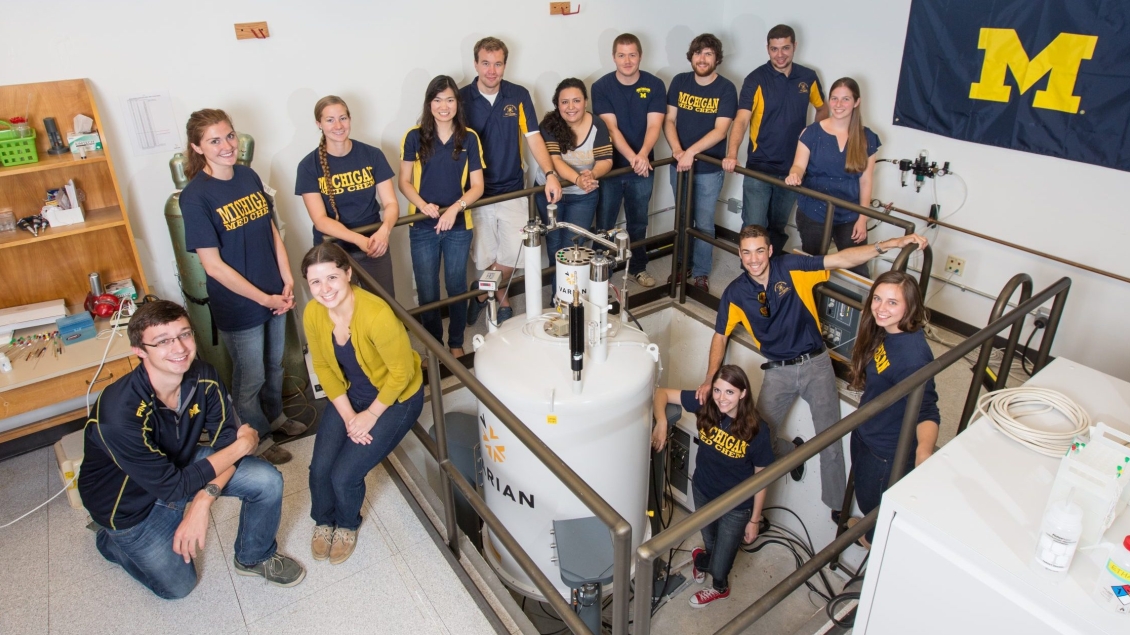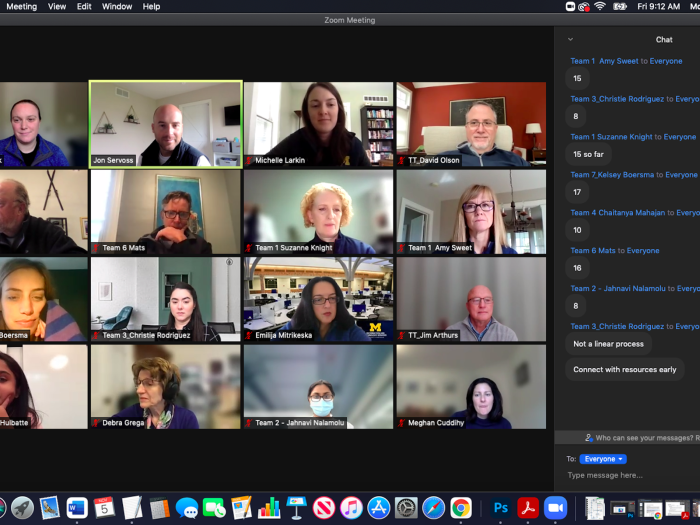
Providing support and consultation in the planning, implementation, and analysis of experiments performed on state-of-the-art high field 400 MHz and 500 MHz NMR spectrometers.
A state-of-the-art Varian 400 NMR spectrometer has pulsed field gradients, auto tune, auto shim and a 5mm ONE probe. Multinuclear capabilities allow the observation of most NMR active nuclei (e.g. 1H, 11B, 13C, 15N, 19F, 29Si, 31P, etc.). It is a “research grade” instrument capable of performing all of the solution NMR techniques commonly reported in the literature. Commonly performed experiments include simple spectra, T1 and T2 relaxation experiments, solvent suppression, selective decoupling and nOe experiments, as well as two-dimensional (2D) COSY, NOESY, HSQC and HMBC. Other experiments required by the user can be implemented with the aid and supervision of the spectroscopist.
A state-of-the-art Varian 500 NMR spectrometer has pulsed field gradients, auto tune, auto shim, a 3mm ONE probe and a twelve slot sample changer robot. It is a “research grade” instrument capable of performing all of the solution NMR techniques commonly reported in the literature. Commonly performed experiments include simple spectra, T1 and T2 relaxation experiments, solvent suppression, selective decoupling and nOe experiments, as well as two-dimensional (2D) COSY, NOESY, HSQC and HMBC. Other experiments required by the user can be implemented with the aid and supervision of the spectroscopist.
Training
In most cases, the spectroscopist will train investigators in the use of the NMR and provide expertise and troubleshooting of NMR instrumental problems as needed. In a few cases, it may be necessary for the spectroscopist to perform the experiment. The decision will be made at the discretion of the spectroscopist. An additional fee is charged in the latter case.
Instrument Use
The Varian 400 is a “walk-on” instrument that can be used by trained users. Users can reserve time on the Varian 400 through the U of M CTools site. The Varian 500 is scheduled by the spectroscopist. Please notify the spectroscopist of your instrument needs as far in advance as possible. Although instrument time is occasionally available on short notice, investigators should not rely on immediate access. Priority will generally be given to users who run their own experiments.
Sample Preparation
NMR sample preparation is the responsibility of the user. It is also the user’s responsibility to provide their own NMR tubes, deuterated solvents, and pipettes. The NMR tubes should be of high grade. Contact the manager for minimal NMR tube specifications and for advice on sample preparation.
For more information about the BNMR (a group affiliated with the BRCF), please visit their website.


Core Director











